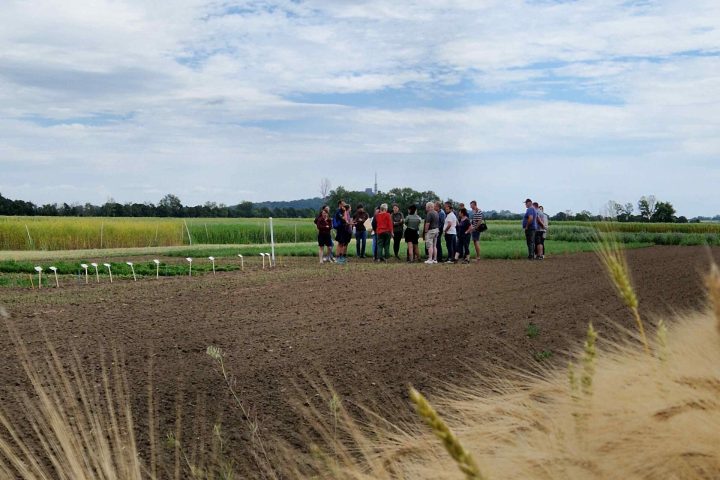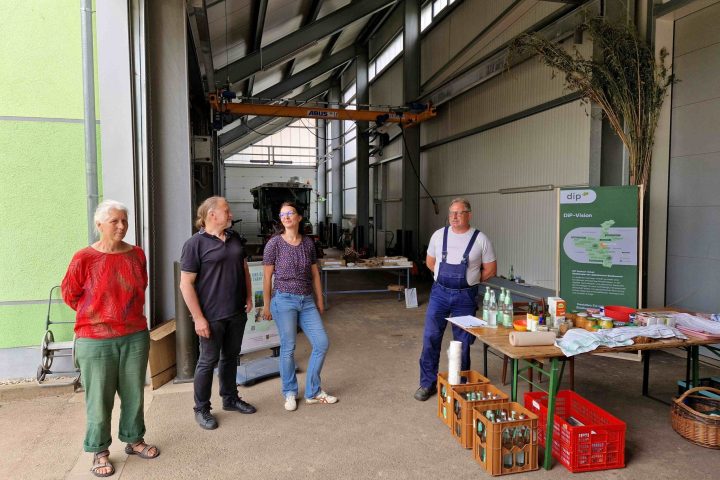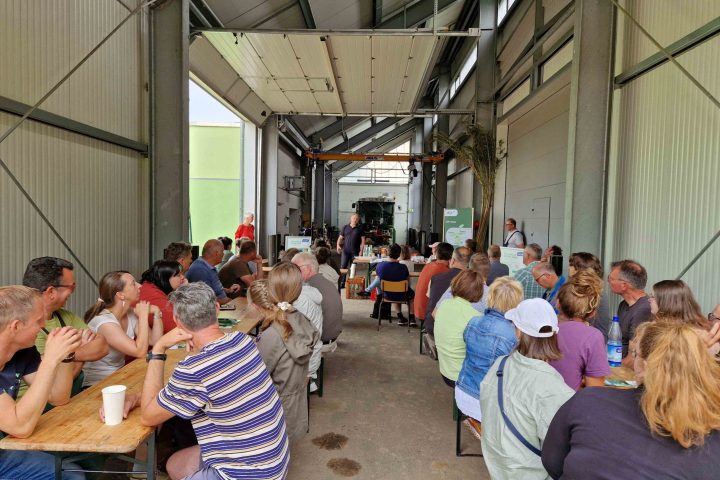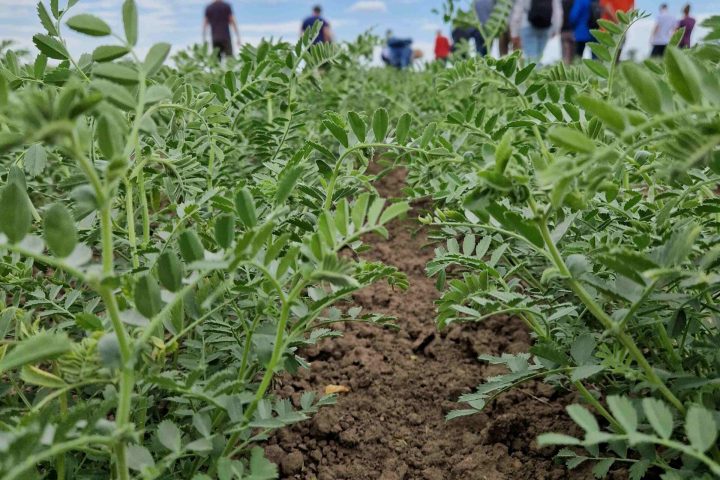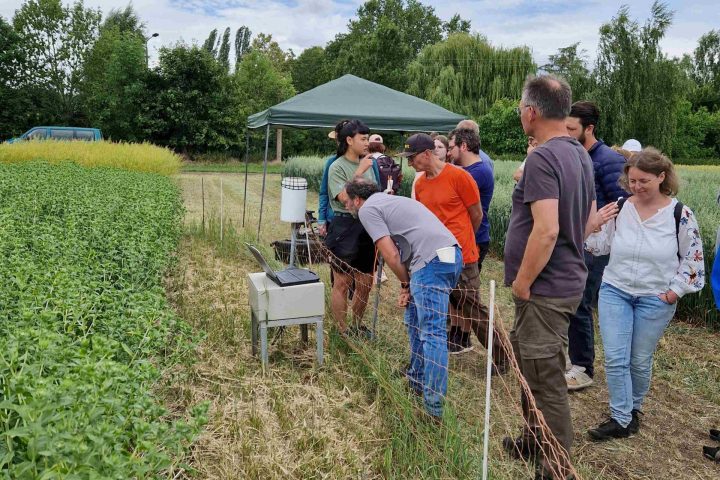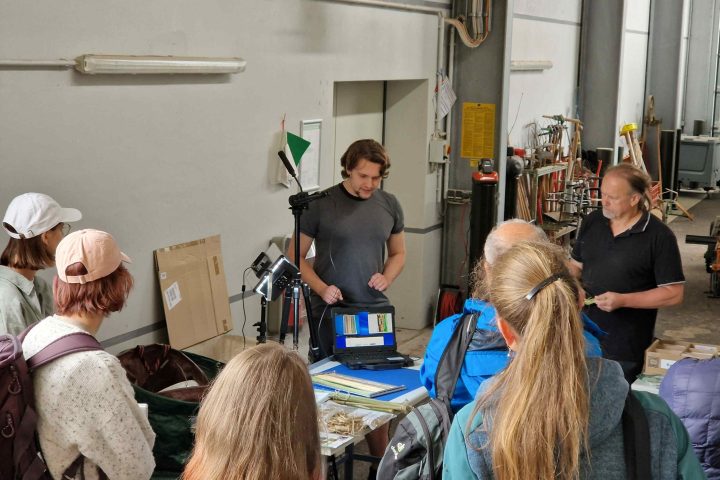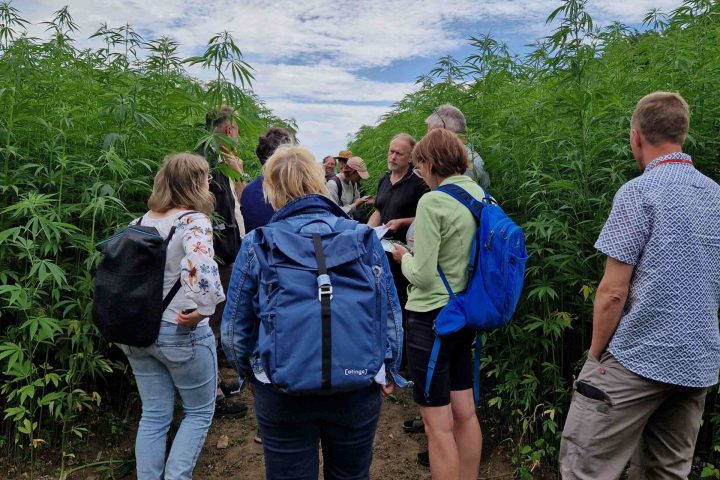More than 40 interested parties – farmers, entrepreneurs, researchers and experts from the field – took the opportunity to find out about the latest developments of the DiP-SuSaKlim and DiP-iQ-Hemp projects directly on site. In addition to a lot of information, there was also plenty of material to touch as well as samples of products from the cultivated plants.
- News
Field Day 2025 – Hemp, Superfoods & New Ideas for Organic Farming
On 24 June 2025, this year's field day of some DiP projects took place in the best weather on the trial plots of the Martin Luther University Halle-Wittenberg (MLU) at the AEVZ Merbitz.
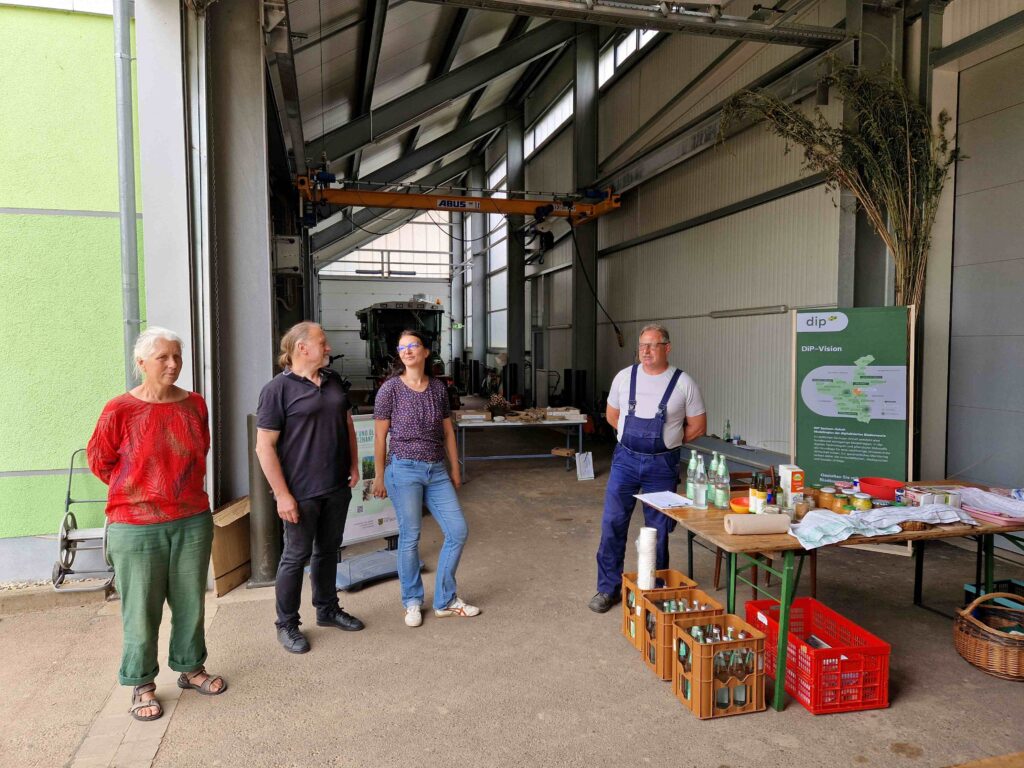
DiP-SuSaKlim: Superfoods in climate change
The DiP-SuSaKlim – Superfood from Saxony-Anhalt project continues to focus on the question of how innovative, climate-adapted crop rotations can be established in organic farming. Climate change is also becoming increasingly noticeable in Saxony-Anhalt: the average annual precipitation is now only 470 mm – with a decreasing trend – while average temperatures have risen by about one degree Celsius in recent years.
These changes place new demands on agriculture. For this reason, the cultivation of drought-resistant plants such as chia, millet, teff, amaranth as well as protein-rich crops such as soy and chickpeas is being intensively tested. In addition to cultivation, the focus is also on suitability for machining and processing into high-quality plant-based foods – with the aim of making crops such as millet or sorghum increasingly usable for human consumption.
Another exciting research topic is mixed cultivation in organic farming, such as the combined cultivation of field beans and wheat. It investigates how the crops can be separated during harvest – especially if they are to be used for human consumption – and what effects on soil life, nitrogen balance and yields can be measured. Initial results indicate that the legume content can potentially save fertilizers.
In the crop rotation trials, the focus is also on oil plants such as safflower, mustard and oilseed. The aim is to be able to make well-founded statements about yield, plant health, soil water balance and nitrogen dynamics under changed climate conditions.
DiP-iQ Hemp: Variety Diversity and Digital Harvest Evaluation
The sister project DiP-iQ-Hemp was also presented during the field day. On the hemp variety trial plots, the focus is on optimising the industrial hemp varieties for high-yield hemp fibre harvest production. This year, 20 different varieties were grown. Among other things, this showed that some varieties are more prone to branching than others and that higher sowing rates lead to a lower growth height – a disadvantage for fibre quality and thus an important aspect for future cultivation practice.
The functionality of a machine learning-based image analysis method was also presented, which will serve as basis for a future app for determining field roasting after harvesting. In the future, this app is intended to support farmers in determining the optimal time for field roasting – a central prerequisite for better planning and quality assurance in the further processing of hemp fibers.
Outlook
The Field Day 2025 offered exciting insights into practical research and once again showed how important innovative approaches are in (organic) farming. The mixture of scientific findings, stimulating exchange and practical demonstrations – coupled with many opportunities to touch and taste – made the day a complete success for all participants.
A big thank you again goes to the organization team around Urte Grauwinkel, Bernd Look and Heinrich Rennebaum, who made this successful day possible.
